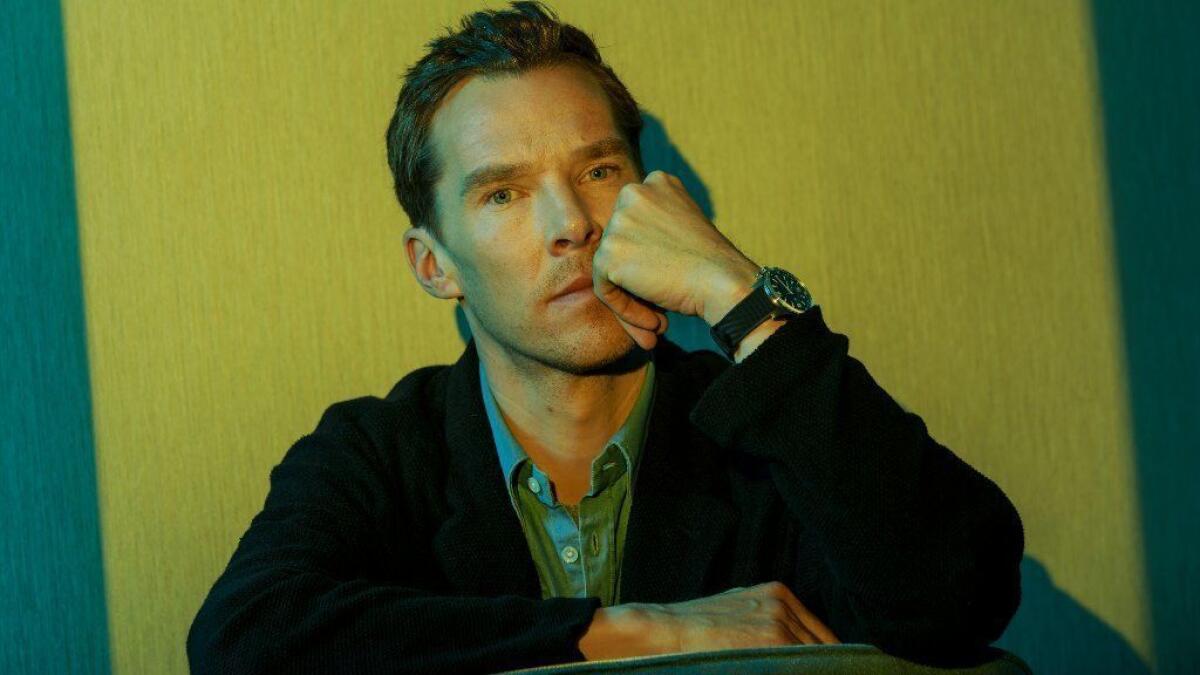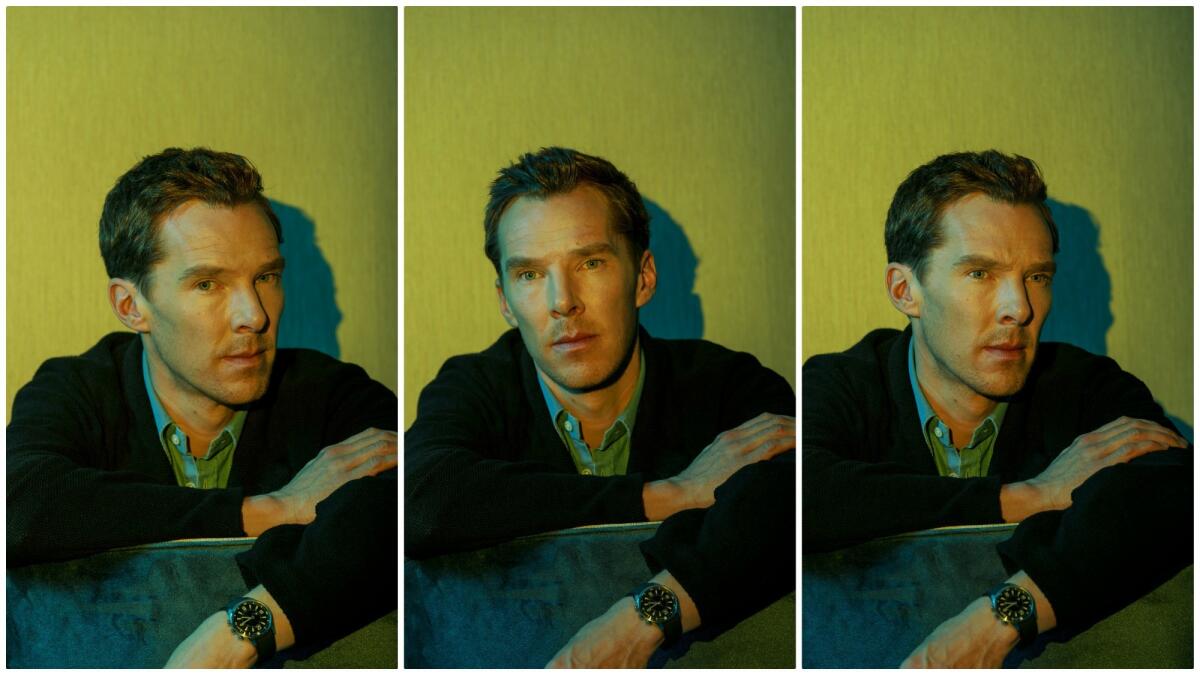Benedict Cumberbatch delves into a world of addiction and despair in ‘Patrick Melrose’

For Benedict Cumberbatch, landing the role of Patrick Melrose in the Showtime limited series of the same name started out by simply answering a question on Reddit’s popular “ask me anything” forum. If you could choose to be any literary character in an upcoming role who would it be? “I rarely know the answer,” says the six-time Emmy nominee. “Whenever anyone asks me, I resort to the truth that I’ve been lucky enough to be in this space, but [this time] I just so happened to have two projects in front of me. One was about Prince Hamlet and the other was a series of books that I think are some of the finest prose of the 21st century.”
Based on the autobiographical novels of Edward St. Aubyn published between 1992 and 2012, the tale of family trauma – adapted by writer David Nicholls – follows a damaged man addicted to drugs and alcohol who’s been sexually abused by his father before finding recovery, love and starting a family of his own.
“You’re inherently lucky when you start with source material like that,” says Cumberbatch. “There’s subtext and a guide to what you need to be thinking when you’re not saying or doing it. It was probably a daunting task for David [Nicholls] to dramatize what were essentially at times very much internalized moments. It was about translating the novels’ internal life and interior life and subtext and putting them into dramatic moments of action and dialogue.”
WATCH: Video Q&As from this season’s hottest contenders »
Cumberbatch met with St. Aubyn on several occasions to further explore that emotional journey. “He was incredibly generous sharing private stories without thought or ego. I’ve never suffered from abuse or been an addict and this skewers a world that I have a peripheral understanding of in a really interesting and dynamic way. It’s human. It’s extraordinary. It journeys through some of the darkest things imaginable with some flame of innocence and hope.”
Bringing accurate psychological and physical attributes of each drug to screen, whether it was heroin, cocaine, opioids or alcohol was central to defining the character. On shooting days, two addiction consultants steered him toward truth and detail. “They were incredibly helpful and described how each drug can affect you with painful honesty,” says Cumberbatch. “It was very important to delineate each drug and define the state the character was in. If you’ve been a witness to that kind of behavior or never experienced it before, you have to watch something that’s believable and not shy away from the 180-degree turns of pain and mood.“
For the character’s sobriety, Cumberbatch changed the tempo. “Patrick implodes internally, turning into a paranoid schizophrenic, but he’s able to push his troubles at arm’s length and save himself. While sober, his thought process is slower, more warped in an un-energized way. He works in different rhythms.”
Beyond his contributions as an actor, Cumberbatch served as executive producer, interviewing directors and sharing thoughts during casting. He hit it off with Edward Berger when the potential director said he saw these episodes as “five different films about a man struggling to become a survivor as he tries to free himself from his past.” Cumberbatch mentions, “It was delightful to be creatively involved in the entire production process. Edward kept an incredibly collaborative conversation going and was open to suggestions and notes in the editing room even though he had final cut. It really was a conversation and that’s rare.” The actor did however hang up his executive producer hat during production, noting that it was important for him to focus on building his relationship with the crew as an actor.
When asked about the response he’s received, Cumberbatch says, “As a storyteller, when people embrace what you’ve done that’s all you can ever want. To tell challenging stories and for people to take something from it, you know you’ve done your job. To get nominated on top of that is an embarrassment of riches, to be frank. It’s a further validation of the work, which we are thrilled about.”

More to Read
From the Oscars to the Emmys.
Get the Envelope newsletter for exclusive awards season coverage, behind-the-scenes stories from the Envelope podcast and columnist Glenn Whipp’s must-read analysis.
You may occasionally receive promotional content from the Los Angeles Times.







